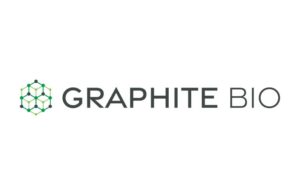 Graphite Bio announced that it closed an oversubscribed Series B financing round with proceeds totaling $150 million.
Graphite Bio announced that it closed an oversubscribed Series B financing round with proceeds totaling $150 million.
South San Francisco-based Graphite Bio’s funding is earmarked for the expansion and advancement into the clinic of its pipeline of investigational targeted gene integration therapies with curative potential for serious diseases, according to a news release.
The company develops the targeted gene integration platform to harness the cellular process of homology-directed repair to efficiently repair genetic defects at their source, deliver genetic cargo with precision and engineer new cellular effector functions.
Graphite Bio has received investigational new drug clearance from the FDA to initiate a Phase 1/2 clinical trial to evaluate its GPH101 therapy for sickle cell disease. The company is also working on studies to advance investigational therapies GPH201 and GPH301 in severe combined immune deficiency with IL2RG deficiency, known as x-linked SCID (XSCID), and Gaucher Disease (Types 1 and 3), respectively.
RA Capital Management and Rock Springs Capital led the $150 million financing round, while new investors Cormorant Asset Management, Deerfield Management Company, Federated Hermes Kaufmann Funds, Fidelity Management & Research Company, Janus Henderson Investors, Logos Capital, OrbiMed, Perceptive Advisors, Surveyor Capital (a Citadel company), and Venrock Healthcare Capital Partners participated, too. Existing investor Samsara BioCapital and founding investor Versant Ventures also added to the funding.
“We are gratified to receive the tremendous support from this group of world-class investors who share in our ambitious vision. This milestone provides further validation for our highly differentiated gene integration platform and enables us to advance our pipeline through initial clinical milestones,” Graphite Bio CEO Dr. Josh Lehrer said in the release. “To date, we have delivered on our commitment to advance our pipeline with urgency, always with an intent focus on delivering truly innovative therapies to patients. We are grateful for the confidence of our investors, which will support our clinical trial in sickle cell disease and advance our XSCID and Gaucher programs toward the clinic.”

